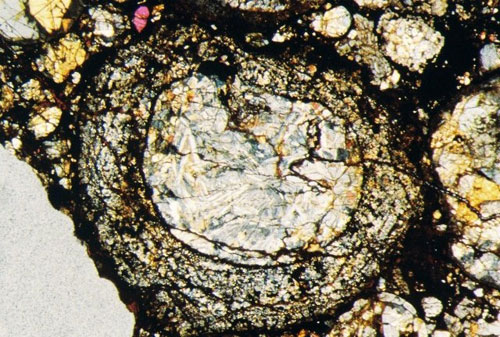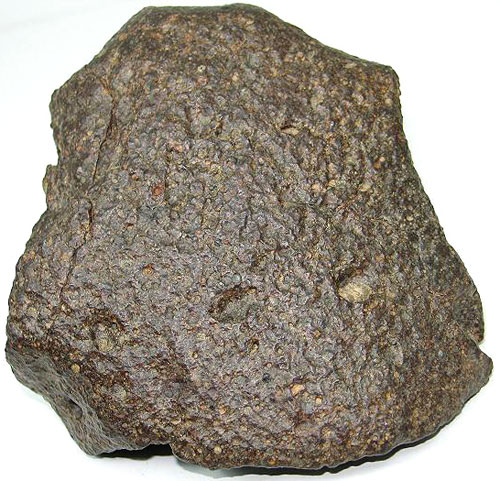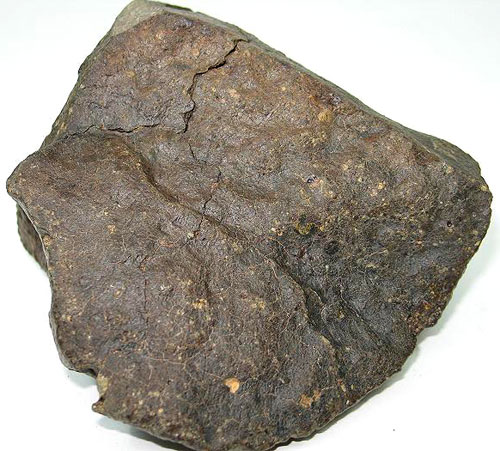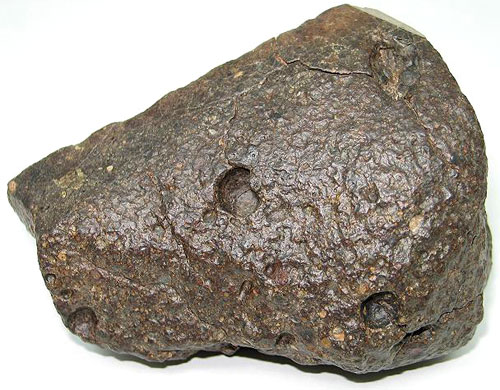


- Meteorites For Sale - Found A Meteorite? - Monthly Favourite - Meteorite Information - Classification List - Meteorite Collection - Media Centre - Home - Search - Site Map - Contact |
|
Northwest Africa 5206 (NWA 5206) Northwest Africa 5206 was discovered in Algeria during 2007 and purchased by a dealer in Erfoud, Morocco later in October 2007. The stone was a complete 1276g desert-weathered, brown stone. Hiding under this weathered exterior was one of the most primitive and highly unequilibrated ordinary chondrites ever discovered. NWA 5206 was to be later classified as an Ordinary Chondrite LL3.05 with a Shock Rating of S2 and a Weathering Level of W3. This meteorite is actually the first and only chondrite to receive an LL3.05 classification. The classification makes mention of the closely packed pristine chondrules with many varieties present. However, Type I Chondrules (FeO-poor) are dominant over Type II (FeO-rich) by a ratio of 3:1. There are many chondrule textural types present in this meteorite including some unique types. Several heavily mantled chondrules have also been observed during study and an example of this is viewable in the 6.47g partslice below. A thin-section image showing a heavily mantled chondrule taken during study at Northern Arizona is also further down the page. There is another very rare feature in the partslice below which is a metallic chondrule. Hutchison (2004) said the following about this unusual feature:
SEM imagery and x-ray mapping at 3000X magnification has shown no evidence that the homogeneous chondrule mesostasis has undergone devitrification further indicating the highly primitive nature of this meteorite. The classification also mentions that NWA 5206 may actually be more primitive than the given 3.05 subtype but until high quality analyses are performed on chondrule mesostasis for Potassium and Sodium contents and distributions, a subtype below 3.05 is not warranted at this time. 6.47g Partslice - MA.10.0009 .jpg) NWA 5206 (LL3.05) - 6.47g Partslice Enlargement ---> 2000 x 1381 (802KB)
17.54g Complete Slice - MA.10.0010 .jpg) NWA 5206 (LL3.05) - 17.54g Complete Slice Enlargement ---> 2000 x 1369 (911KB)
NWA 5206 - Other Photographs
Click here to view the archive of the Monthly Favourites
|
.jpg)
.jpg)
.jpg)
.jpg)
.jpg)
.jpg)
.jpg)
.jpg)
.jpg)



